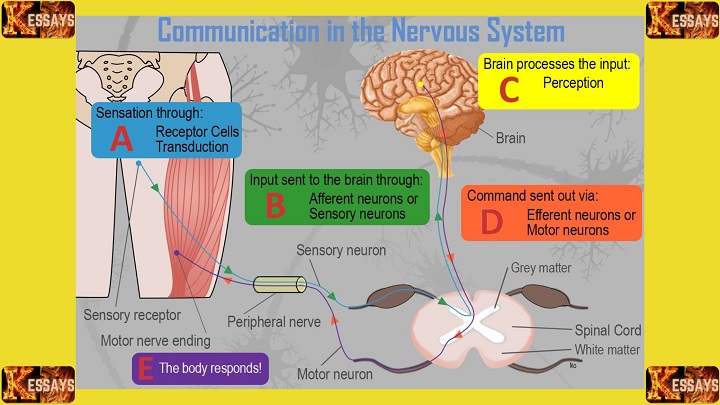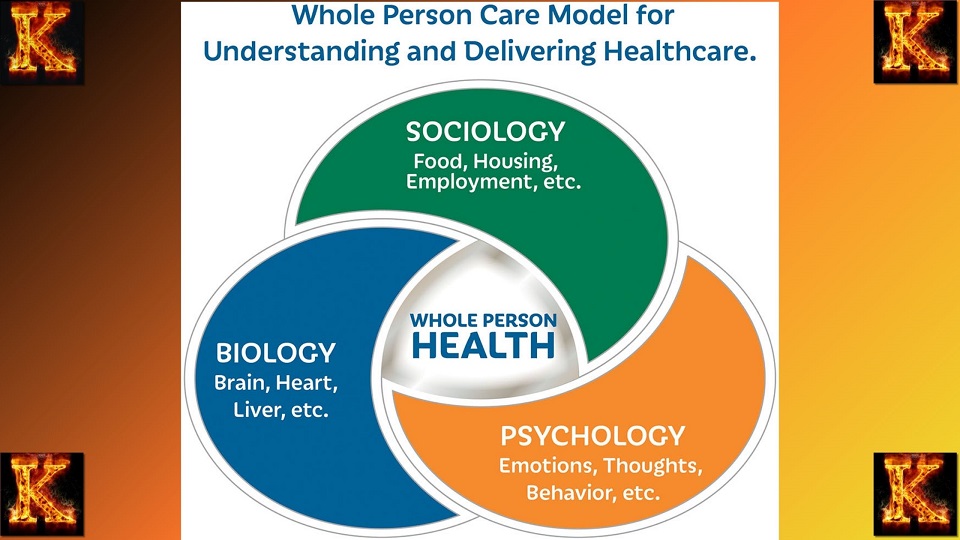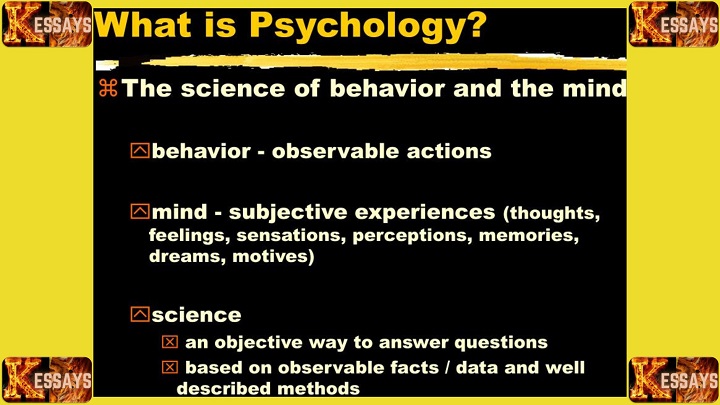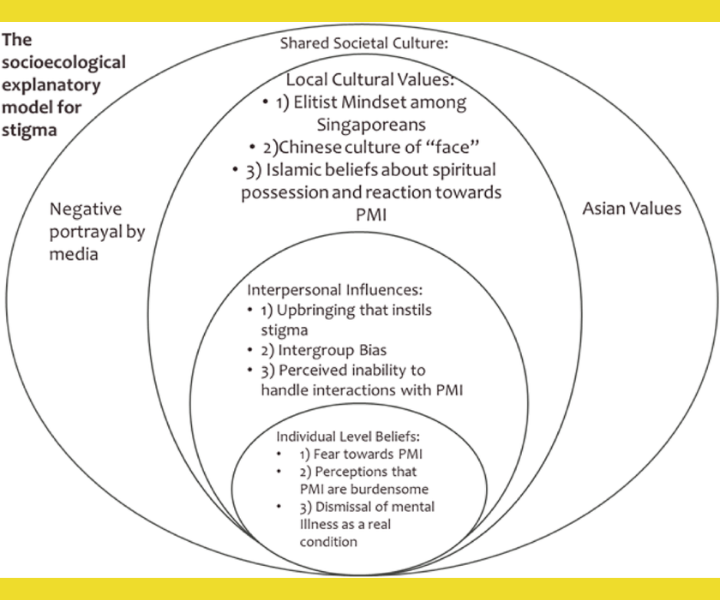Introduction
Abnormal psychology delves into the complexities of psychological disorders, offering insights into atypical behaviors and their impact on individuals. Case studies serve as invaluable tools in this field, providing in-depth examinations of mental health conditions and their manifestations. Popular media, particularly films, frequently depict characters with psychological disorders, shaping public perceptions and influencing discussions on mental health. This article explores how cinematic portrayals of mental illness contribute to our understanding of abnormal psychology, assessing both their accuracy and their implications for clinical practice. Through an analysis of twenty-five case studies from film, this study highlights the intersection of psychology and media representation, emphasizing the role of storytelling in shaping societal attitudes toward mental health.
The Significance of Case Studies in Abnormal Psychology
Case studies are indispensable in abnormal psychology, offering nuanced insights into the manifestation, progression, and treatment of psychological disorders. They facilitate an in-depth examination of individual experiences, contributing to both theoretical understanding and clinical practice. By analyzing multiple cases, researchers can identify patterns, variations, and unique characteristics of specific disorders. The significance of case studies in abnormal psychology can be summarized as follows:
-
Comprehensive Understanding: Case studies provide a detailed exploration of psychological disorders beyond standardized diagnostic criteria. They illuminate the interplay between an individual’s background, symptom progression, environmental triggers, and treatment responses, offering a holistic perspective on psychopathology.
-
Clinical Insights and Symptomatology: Through case analyses, clinicians gain valuable insights into symptom expression, severity, and functional impairment. This depth of understanding enhances diagnostic accuracy, informs personalized treatment planning, and enables effective monitoring of therapeutic progress.
-
Etiology and Risk Factor Analysis: Case studies facilitate the investigation of psychological disorder etiology by examining genetic predispositions, early-life experiences, and environmental influences. This individualized approach helps delineate risk factors and contributes to refining theoretical models of mental illness.
-
Evaluation of Treatment Efficacy: By documenting treatment processes and outcomes, case studies provide empirical evidence on the effectiveness of various therapeutic interventions. They help identify successful approaches and highlight limitations, guiding clinicians in optimizing treatment strategies for similar cases.
-
Comparative Analysis of Disorders: Examining multiple case studies enables researchers to discern commonalities and distinctions within and across diagnostic categories. This comparative analysis aids in refining diagnostic classifications, recognizing subtypes, and tailoring interventions to specific psychopathological profiles.
-
Hypothesis Generation and Research Advancement: Case studies serve as a foundation for developing research questions and hypotheses. The observations derived from individual cases often inspire further empirical investigations, shaping the trajectory of psychological research and clinical innovations.
-
Ethical and Humanistic Considerations: Case studies underscore the ethical obligations in psychological research and practice, emphasizing informed consent, confidentiality, and respect for individual rights. Additionally, they humanize mental illness by contextualizing disorders within lived experiences, fostering empathy, and reducing societal stigma.
Case studies are integral to abnormal psychology, offering in-depth analyses that enhance theoretical frameworks, inform clinical interventions, and drive research. By bridging the gap between empirical data and real-world applications, they contribute to a more nuanced and ethical understanding of mental health disorders.

Portrayal of Mental Illness in Films
Films have been a popular medium for portraying mental illnesses, bringing them to the attention of a broader audience. However, the accuracy of these portrayals varies. This section analyzes selected films, drawing upon 25 case studies, to examine how mental illnesses are depicted and the potential impact on public perceptions.Case Studies in Film Analysis
This section examines 25 case studies from various films depicting characters with psychological disorders. Each case is analyzed in terms of symptom presentation, the accuracy of portrayal, treatment approaches, and ethical considerations.
Film: A Beautiful Mind (2001)
Case Study: John Nash (Schizophrenia)
- Symptom Presentation: Delusions, hallucinations, disorganized speech, social withdrawal.
- Accuracy of Portrayal: Generally accurate representation of schizophrenia and its impact on daily functioning.
- Treatment Approaches: Antipsychotic medication, therapy, social support.
- Ethical Considerations: Balancing the portrayal of mental illness with respect for individual privacy and informed consent.
Film: Silver Linings Playbook (2012)
Case Study: Pat Solitano (Bipolar Disorder)
- Symptom Presentation: Mood swings, impulsivity, manic episodes, depression.
- Accuracy of Portrayal: Effectively captures the highs and lows of bipolar disorder, though certain aspects are dramatized for narrative impact.
- Treatment Approaches: Medication, therapy, family support.
- Ethical Considerations: The depiction of mental illness in romantic relationships and issues of consent in sharing personal experiences.
Film: The Perks of Being a Wallflower (2012)
Case Study: Charlie (Post-Traumatic Stress Disorder)
- Symptom Presentation: Flashbacks, social anxiety, withdrawal, emotional dysregulation.
- Accuracy of Portrayal: Realistically illustrates the long-term impact of trauma on mental health and interpersonal relationships.
- Treatment Approaches: Therapy, support groups, coping strategies.
- Ethical Considerations: Sensitivity in portraying trauma while ensuring responsible storytelling and respect for consent.
Film: Girl, Interrupted (1999)
Case Study: Susanna Kaysen (Borderline Personality Disorder)
- Symptom Presentation: Mood instability, self-harm, impulsivity, identity disturbance.
- Accuracy of Portrayal: Offers valuable insight into the experiences of individuals with borderline personality disorder (BPD).
- Treatment Approaches: Therapy, medication, structured environment.
- Ethical Considerations: The portrayal of self-harm and suicide, and the need to maintain patient confidentiality.
Film: Black Swan (2010)
Case Study: Nina Sayers (Eating Disorder and Dissociative Identity Disorder)
- Symptom Presentation: Body dysmorphia, obsession with perfection, disordered eating, dissociation.
- Accuracy of Portrayal: While dramaticized for artistic purposes, the film provides a glimpse into the psychological struggles of the protagonist.
- Treatment Approaches: Therapy, support groups, addressing underlying trauma.
- Ethical Considerations: The risk of sensationalizing mental illness and the responsibility of filmmakers in ensuring accurate representation.
Film: Rain Man (1988)
Case Study: Raymond Babbitt (Autism Spectrum Disorder)
- Symptom Presentation: Impaired social interactions, repetitive behaviors, intense focus on routines.
- Accuracy of Portrayal: Highlights certain characteristics of autism but fails to fully represent the spectrum of the disorder.
- Treatment Approaches: Structured routines, behavioral therapy, social skills training.
- Ethical Considerations: Ensuring authentic representation while respecting the privacy and dignity of individuals with autism.
Film: One Flew Over the Cuckoo’s Nest (1975)
Case Study: Randle McMurphy (Antisocial Personality Disorder)
- Symptom Presentation: Lack of empathy, disregard for rules, manipulative behavior.
- Accuracy of Portrayal: Depicts traits of antisocial personality disorder, though certain elements are exaggerated for dramatic effect.
- Treatment Approaches: Medication, therapy, structured environment.
- Ethical Considerations: The depiction of psychiatric institutions and the ethical balance between personal autonomy and involuntary treatment.
The analysis of these case studies highlights the complexity and diversity of psychological disorders while challenging commonly held stereotypes. It underscores the importance of accurate portrayals in films to reduce stigma, enhance public awareness, and foster empathy. Additionally, the findings provide insights into the effectiveness and limitations of various treatment strategies, reinforcing the need for nuanced and responsible depictions of mental illness in popular media.

Read Also: TechFite Case Study
Implications for Clinical Practice
The depiction of abnormal psychology in films offers valuable insights that can enhance clinical practice. By critically analyzing the portrayal of psychological disorders and treatment approaches, clinicians can evaluate the applicability of these interventions in real-world settings. Additionally, these portrayals raise important ethical considerations related to confidentiality, informed consent, and the responsible representation of mental illnesses. The following key implications for clinical practice emerge from examining case studies in films:
1. Refining Treatment Strategies
Films depicting mental health disorders present a range of treatment approaches, from pharmacological interventions to psychotherapy and social support systems. By evaluating these portrayals, clinicians can explore alternative therapeutic techniques and consider new treatment modalities beyond conventional methods. This can foster a more holistic and patient-centered approach to care, incorporating strategies that may have been previously overlooked.
2. Validating Treatment Outcomes and Inspiring Hope
The portrayal of recovery and progress in films can serve as an informal validation of treatment outcomes, reinforcing clinicians’ confidence in evidence-based interventions. While fictionalized, these narratives can inspire hope in both practitioners and patients by demonstrating that improvement is possible. Clinicians can use these case studies to illustrate potential recovery trajectories, helping patients visualize the benefits of adherence to treatment plans.
3. Addressing Ethical Considerations in Clinical Practice
The portrayal of psychological disorders in film raises ethical issues that are directly relevant to clinical practice. Key considerations include:
- Confidentiality and Privacy: Ensuring that discussions about case studies, whether real or fictional, respect patient confidentiality.
- Informed Consent: Advocating for ethical representation in media by highlighting the importance of obtaining informed consent when real-life cases are depicted.
- Accuracy and Responsibility: Encouraging filmmakers and clinicians to avoid sensationalizing mental illnesses and instead promote responsible, stigma-free representations.
4. Challenging Stereotypes and Reducing Stigma
Films that accurately depict mental health conditions help dispel common misconceptions and reduce societal stigma. Clinicians can leverage these portrayals as educational tools to foster discussions with patients, families, and the broader community. By showcasing the lived experiences of individuals with psychological disorders, clinicians can cultivate greater empathy and understanding, challenging harmful stereotypes that contribute to discrimination.
5. Enhancing Patient Communication and Engagement
Using film as a reference point can improve clinician-patient communication by making complex psychological concepts more accessible. Visual storytelling helps patients relate to symptoms, treatment options, and recovery journeys, facilitating discussions in a non-intimidating manner. This approach can strengthen patient engagement, promote shared decision-making, and improve treatment adherence.
6. Advancing Professional Development and Continuing Education
Analyzing film case studies allows clinicians to refine their clinical skills, expand their knowledge base, and stay informed about contemporary interventions. Films can serve as valuable resources in continuing education programs, providing discussion points for professional development workshops and case study analyses. This encourages critical thinking about best practices in mental health care.
7. Fostering Collaborative Discussions Among Clinicians
Films portraying abnormal psychology can spark multidisciplinary conversations among healthcare professionals. Psychiatrists, psychologists, social workers, and other mental health practitioners can engage in collaborative discussions, sharing perspectives on treatment approaches, ethical dilemmas, and media representations of mental illness. These discussions promote reflective practice and encourage a team-based approach to patient care.
The analysis of psychological disorders in films provides an opportunity for clinicians to critically evaluate treatment strategies, ethical considerations, and stigma-related issues in mental health care. By integrating these insights into their practice, mental health professionals can improve patient education, foster a more compassionate clinical environment, and enhance interdisciplinary collaboration. While films should not be relied upon as clinical evidence, their impact in shaping public perception and professional discourse makes them a valuable tool in the broader landscape of mental health awareness and treatment.

Limitations and Future Directions
While films serve as a valuable resource for understanding abnormal psychology, they often oversimplify complex conditions or sensationalize symptoms for dramatic effect. This can contribute to misinformation and reinforce stereotypes about mental illness. Future research should explore how accurate portrayals influence public attitudes and work towards developing guidelines to ensure responsible and realistic depictions of psychological disorders in media.
Limitations of Case Studies in Abnormal Psychology
Despite their usefulness in clinical education and research, case studies in abnormal psychology have several inherent limitations:
- Limited Generalizability: Case studies focus on individual cases, making it difficult to generalize findings to the broader population. The unique characteristics and circumstances of each case limit the applicability of conclusions to others with similar disorders.
-
Subjectivity and Potential Bias: Case studies rely on the perspectives of individuals involved, including patients, clinicians, and researchers. These perspectives may introduce subjectivity and biases in data interpretation. A researcher's theoretical orientation and preconceptions can further influence the selection and analysis of information, potentially leading to biased conclusions.
-
Lack of Experimental Control: Unlike experimental research, case studies do not have strict control over variables. Factors such as confounding variables, multiple interventions, and the absence of a control group make it difficult to establish causal relationships between psychological factors and treatment outcomes.
-
Potential for Retrospective Bias: Retrospective case studies depend on individuals' recollections of past events, making them vulnerable to recall bias. Memory distortions, personal interpretations, and changes in perspective over time can compromise the accuracy of reported information.
-
Time and Resource Constraints: Conducting in-depth case studies requires significant time and resources. Researchers often face challenges in participant recruitment, data collection, and long-term follow-ups. These constraints limit the number of cases that can be studied, affecting the representativeness of the findings.
Future Directions in the Study of Case Studies in Abnormal Psychology
To enhance the reliability and impact of case studies in abnormal psychology, future research should focus on the following areas:
-
Advancing Research Methodologies: Implementing more rigorous methodologies—such as standardized assessment tools, control groups, and longitudinal study designs—can improve the reliability and validity of case study findings. Enhancing methodological rigor would allow for stronger conclusions and better applicability to clinical practice.
-
Comparative Case Studies: Examining multiple cases within a specific disorder or across different disorders can provide a more nuanced understanding of symptom variations, treatment outcomes, and etiological factors. Comparative analyses allow researchers to identify patterns and distinctions between cases, improving generalizability.
-
Integration of Quantitative and Qualitative Approaches: Combining quantitative data (e.g., symptom severity ratings, treatment response metrics) with qualitative insights (e.g., patient narratives, lived experiences) can create a more comprehensive understanding of psychological disorders. This mixed-methods approach enriches case study research by capturing both statistical trends and individual experiences.
-
Systematic Evaluation of Treatment Outcomes: Future case studies should focus on assessing treatment effectiveness more systematically, including relapse rates, long-term prognosis, and patient adherence to interventions. This would contribute valuable evidence to support clinical decision-making and refine evidence-based treatment practices.
-
Addressing Ethical Considerations: Ethical concerns in case study research remain critical. Future studies should continue to emphasize:
- The importance of informed consent and privacy protections for participants.
- The responsible dissemination of case findings to avoid harm or misrepresentation.
- The potential psychological impact of research on individuals being studied.
-
Collaboration with Filmmakers and Media Professionals: Engaging with filmmakers and media professionals can help ensure responsible and accurate portrayals of psychological disorders. Establishing guidelines for filmmakers can promote realistic representations, reduce stigma, and enhance public understanding of mental health conditions. Researchers and clinicians can contribute their expertise to create narratives that balance storytelling with scientific accuracy.
Despite their limitations, case studies in abnormal psychology remain a valuable tool for clinical practice and research. Addressing methodological challenges, integrating diverse research approaches, and collaborating with media professionals can enhance the credibility and impact of case study research. Future efforts should focus on improving the accuracy of case portrayals, refining ethical standards, and expanding research methodologies to advance our understanding of psychological disorders.


Comments are closed!